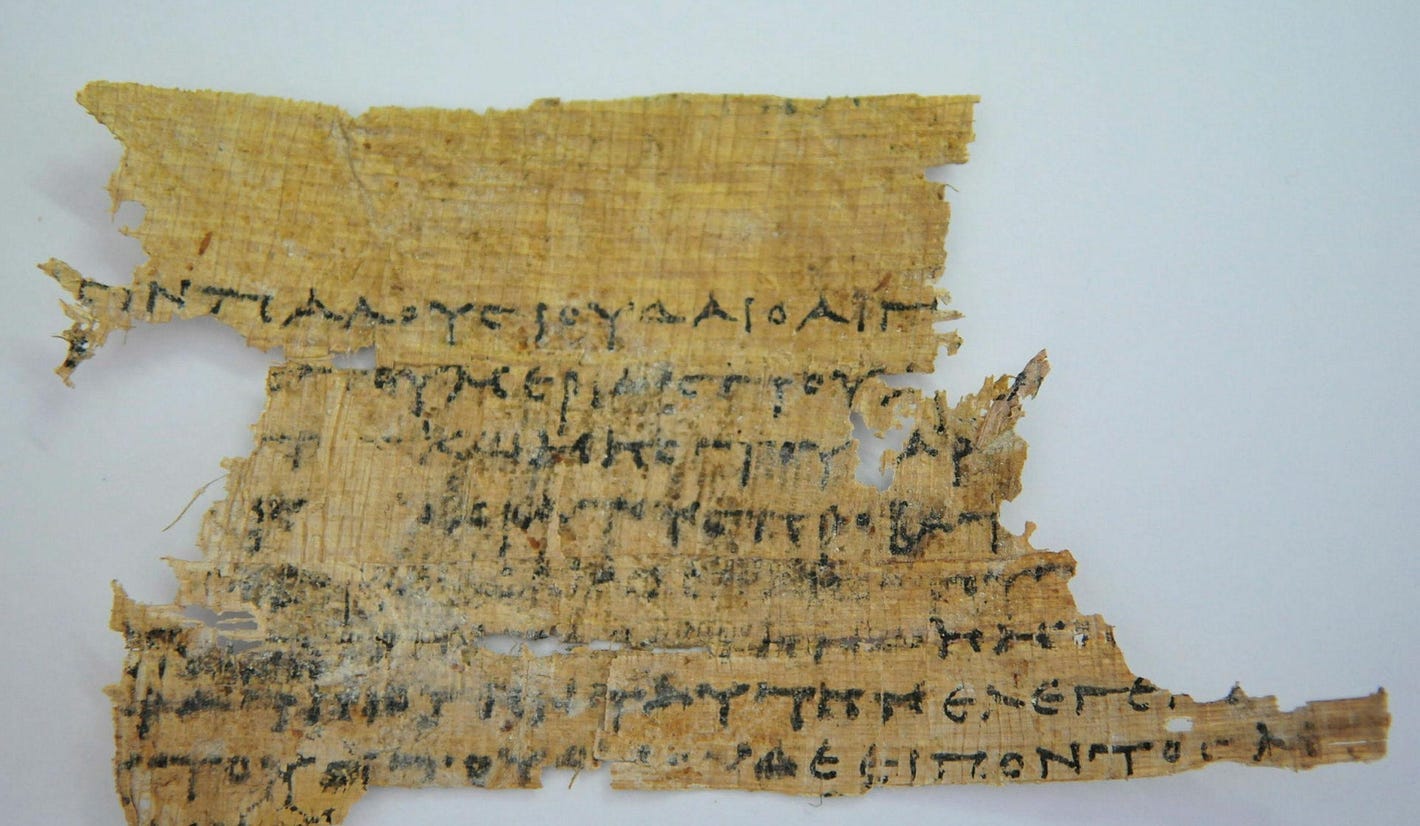A Judeo-Egyptian complains to King Ptolemy about his neighbor found on papyrus fragment
Latest News
Reported by Haaretz:
Around 2,300 years ago, somewhere in a village in ancient Egypt, Palous was peeved.
"To King Ptolemy," Palous started his petition to the great leader in the late third century B.C.E., writing on a papyrus in Greek.
"Greetings [from] Palous, a Judeo-Egyptian… of the meris of Themistos of the Arsinoite Nome," he went on to say. "[I am wronged by] … from the same village. For in the [year]… the sheep of Socrates… this land. He was saying… of the grain; but when I said that…"
That isn't all he wrote, but that's what has survived from Palous' petition – nine broken lines of text written in umber ink, on a papyrus fragment 8.5 by 13 centimeters (3 by 5 inches) in size.
Some writing at the edges of this fragment is missing. Since Palous' petition had been folded like paper, text along the fold (line six) has become illegible. In fact, the name Ptolemy, if it was there, is lost. Yet some of the original intent and the addressee can be plausibly reconstructed, claim Prof. Lincoln H. Blumell and Kerry Hull of Brigham Young University in the Journal of Jewish Studies, autumn 2024 edition.
Today the papyrus lives at the Matsushita Museum of Art in Kirishima, Japan. It was among the 20 Greek and ten Demotic papyri purchased in Egypt in the early 1970s by museum founder and owner Kanetomo Matsushita (1905–1989).
Most of the Greek texts in the collection were written in the Ptolemaic period, about 332 to 30 B.C.E., Blumell and Hull say. Unfortunately, there is no provenance for the artifacts beyond "Cairo," they say. Then they elaborate on why they think the text says what they think it does.
The fact that villagers had a fight in which sheep were involved is not remarkable. The fact that the petition is the only place where the (self-proclaimed) compound ethnicity "Judeo-Egyptian" has ever appeared is remarkable, Blumell and Hull explain.
It's also the earliest extant petition in Greek to any ancient Egyptian king from a Jew.
Read more here.



